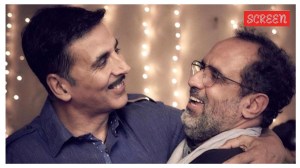Is drop year necessary to crack NEET UG?
If you are sincere about becoming a doctor and think you can perform better with more time to prepare, then taking a drop year to be ready for NEET UG can be a wise choice.
 Many students struggle with the decision of whether to take a year off before taking the NEET exam. (Representative image/ Source: Freepik AI)
Many students struggle with the decision of whether to take a year off before taking the NEET exam. (Representative image/ Source: Freepik AI)— Dr. Gaurav Sharma
In India, the National Eligibility cum Entrance Test (NEET UG) is taken by thousands of students each year in an attempt to get admission to medical colleges. However, not everyone is able to crack or get their desired college in the first attempt.
Many students struggle with the decision of whether to take a year off before taking the NEET exam. Making the difficult choice to take a drop year can have a tremendous impact on a student’s emotional and academic life.
Understanding the plan of action
A thorough understanding of courses such as biology, physics, and chemistry is required for one of the most difficult competitive tests in India. Though they might not succeed on their first try, many students need years of coaching to finally get it right. Having a “drop year” becomes an option in this situation. To completely concentrate on exam preparation, a drop year is a break between two academic years. With no obligation to attend both school and coaching at the same time, it enables students to devote all of their time to their studies.
Advantages of taking a drop year
1. NEET preparation: With a drop year, students can focus just on this aspect of their studies. With no outside distractions, they can properly review topics, take practice exams, and concentrate on their weakest areas.
2. Better time management: Students can set aside more time to study and strengthen their understanding of difficult subjects when they are not burdened by school or college tasks. To accommodate their preferred pace and learning style, they can design a personalised schedule.
3. Enhanced self-belief: It might be really stressful to finish schoolwork while getting ready for the NEET. Since they are not pressed for time, dropout years give children the mental space they need to grow in confidence.
4. Overcome your previous mistakes: Students who have taken the NEET are already aware of their weaknesses. A year off allows them to see where they made errors, learn from them, and improve their approach the next time around.
The difficulties of taking a year off
1. Pressure on the mind and emotions: Taking a year off can be emotionally taxing, particularly if you see your friends advance while you stay in school and prepare. It’s possible to experience dissatisfaction, self-doubt, or failure-related fear. It’s critical to keep an optimistic outlook.
2. Uncertainty of outcomes: Success is not assured even with a low year. Students may feel a great deal of uncertainty. Thus, even after spending a full year preparing, one should be ready to confront obstacles.
3. Parental and societal pressure: Taking a drop year may not always have the complete backing of parents or other family members. Stress can be increased by peer pressure and comparing one’s own development to others. Receiving emotional support and maintaining communication with family members is crucial.
4. Academic journey gap: Some students may find it disconcerting if they have a drop year, which indicates a break in their academic schedule. If, however, you are able to obtain a medical seat following a drop year, this is not a significant problem.
Things to think about prior to taking a drop year
– Self-evaluation: Examine your past performance prior to making this choice. Determine if taking a year off will make a big difference in your chances. Think about if you still have the will and self-control to study hard for an additional year.
– Alternative strategy: It’s a good idea to have a plan B. After the drop year, consider your course of action in the event that things do not go as planned. If NEET isn’t your best fit, think about looking into other medical specialties or fields (such paramedical studies).
– Health and well-being: During the drop year, remember to look after your physical and emotional health. Regular exercise, hobbies, and breaks can help maintain balance because constant preparation can be exhausting.
If you are sincere about becoming a doctor and think you can perform better with more time to prepare, then taking a drop year to be ready for NEET UG can be a wise choice. It’s crucial to thoroughly consider the benefits and drawbacks, and if you decide to drop, make sure you have a strong plan and support network in place.
(The writer is from Medical Division of Vidyamandir Classes)
- 01
- 02
- 03
- 04
- 05
































